
J.B. Hunt Transport Services announced it will shut its Home Depot distribution center in Lithonia, Georgia, on Oct. 27, 2025.
A WARN notice filed in August confirms all 74 workers there (drivers, managers, dispatchers) will be laid off that day. The abrupt closure of a major hub signals deeper instability in U.S. freight.
Nationwide Layoffs Surge
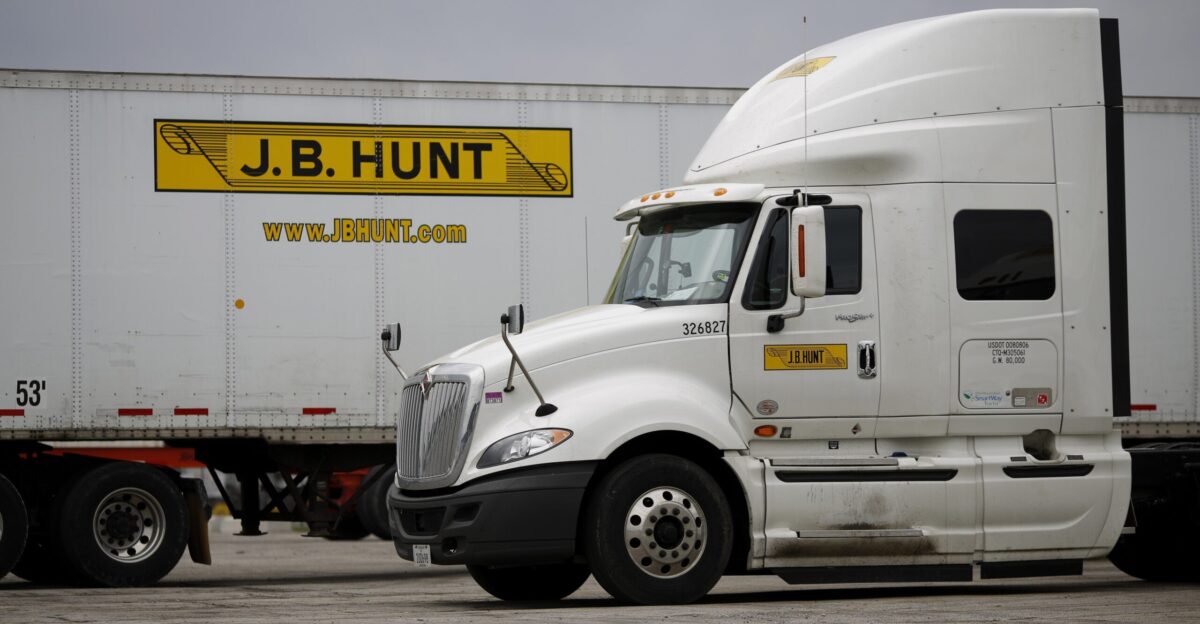
This closure is part of a broader wave of cuts. Industry analysts report that nearly 2,000 logistics and supply-chain jobs have been cut in key states (including Georgia, California, and Michigan) in recent months.
Experts say aging warehouses, lost contracts, and shifting demand are triggering these layoffs, reshaping the freight and distribution landscape across America.
Deepening Freight Recession
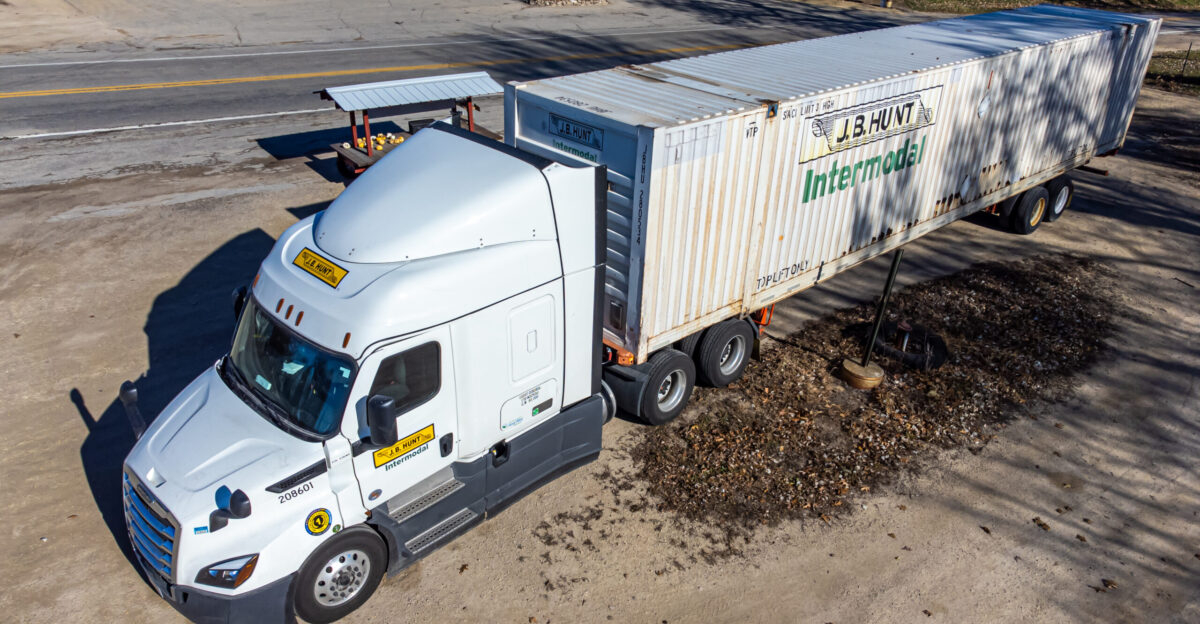
Analysts say the sector remains mired in a deep downturn. Since 2022, freight demand has fallen sharply from its COVID-era peak, forcing over 30 U.S. trucking companies into bankruptcy in the past year.
FTR Intelligence’s Avery Vise warns that “trucking remains in a prolonged slump… a severe hangover” from that boom.
Growing Carrier Pressures
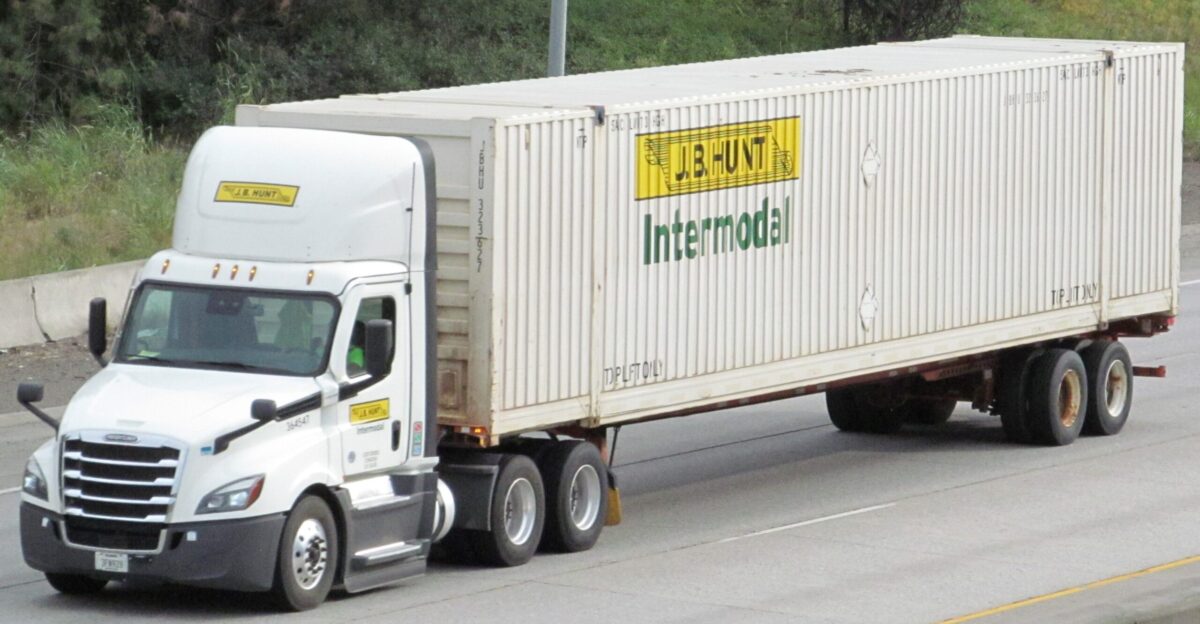
J.B. Hunt and its competitors have felt the squeeze. The company’s CFO said this year they needed “to accelerate improvement in our financial performance” by cutting costs.
J.B. Hunt has already slashed about 1,000 jobs from 2023 to 2024. Like other carriers, it is pursuing aggressive efficiency and network consolidation to survive flat volumes and high equipment expenses.
Confirmed Hub Shutdown
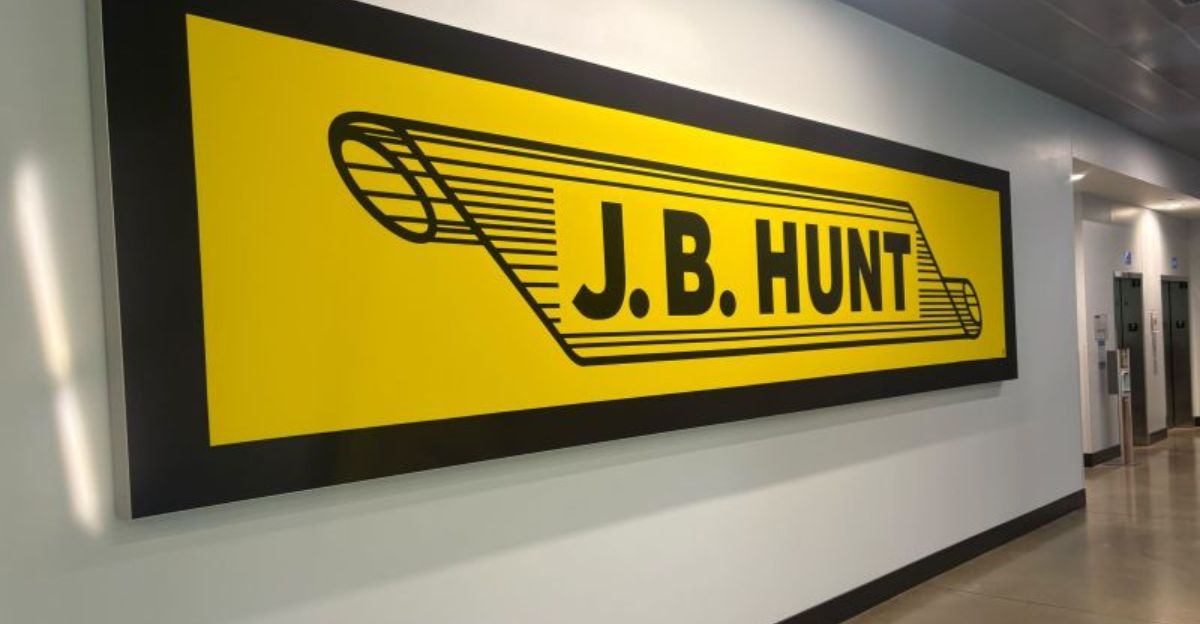
On Oct. 27, 2025, J.B. Hunt will permanently close the Lithonia Home Depot distribution hub.
The WARN notice confirms the shutdown will eliminate all 74 jobs at the site, ending its operations for good. This is a major loss for the company’s network and for the local workforce, which now faces a sudden gap in employment.
Human Cost
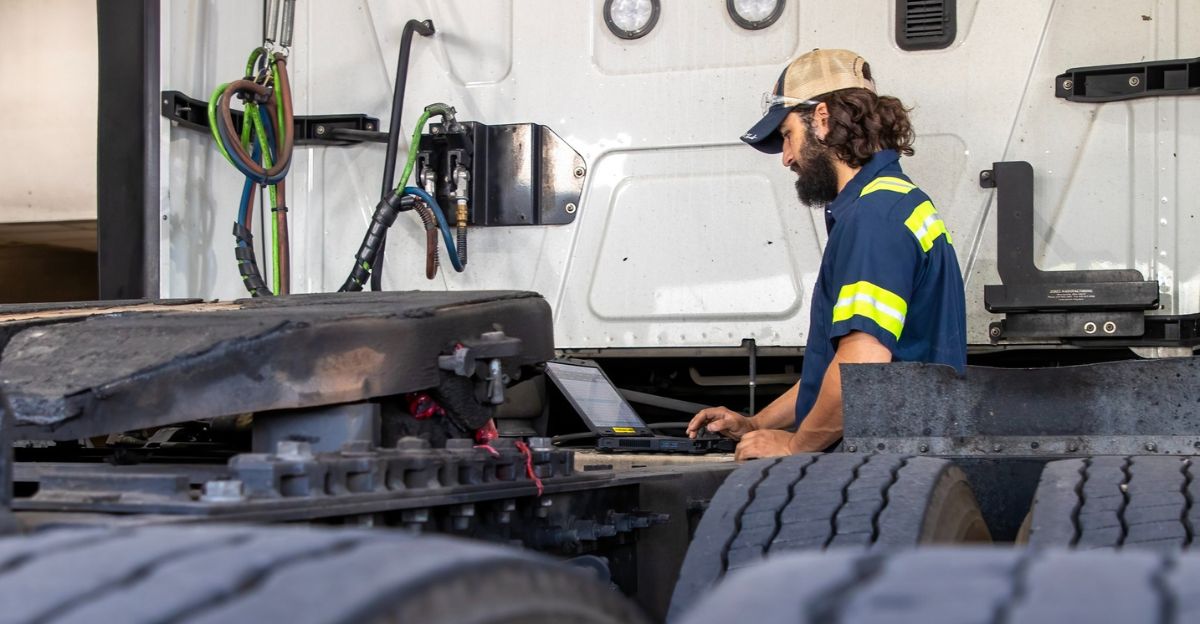
All 74 local employees—drivers, dispatchers, and managers—will be laid off by Oct. 27. Under WARN rules, none have guaranteed jobs elsewhere. Many workers say the news felt like a betrayal after years on the job.
Even the company acknowledges the hardship: “When navigating a changing supply chain environment, J.B. Hunt strives to manage through any contract loss or facility closure by minimizing the impact to our people…including helping impacted employees transfer to open positions,” it said.
Wider Supply Chain Effects
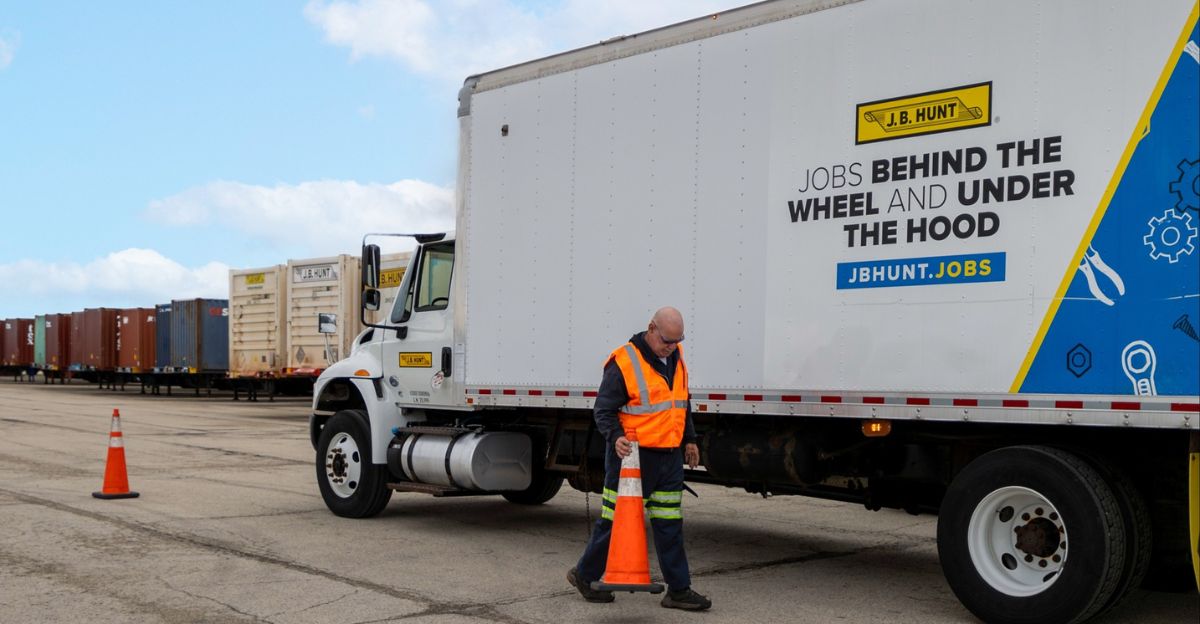
Supply chain managers nationwide are already feeling the impact. Closing major hubs “affects the pace and efficiency of freight delivery” across the system.
Experts say rerouting through alternate terminals will slow shipments and raise costs. In effect, these shutdowns strain the entire distribution network, requiring adjustments from importers to last-mile couriers in order to keep goods moving.
Secondary Ripples

The shock doesn’t stop with carriers. Downstream suppliers and local businesses may face disruptions too. When key distribution centers close, smaller freight brokers and regional companies can see orders delayed or rerouted onto more expensive channels.
Industry analysts say these secondary impacts can bog down local economies and ripple up the chain, compounding the pain beyond the immediate layoffs.
Anger Among Workers

Workers describe feeling blindsided by the abrupt announcement. Facing unemployment, many have little time to find new jobs. Under WARN rules, they receive only a 60-day notice and no severance.
A truckers’ union representative notes drivers and warehouse staff are “in disbelief and anger,” given how suddenly the news hit. Morale is shattered, and trust in management has eroded as families prepare for lean months ahead.
Company Rationale

J.B. Hunt management blames the broader downturn. The firm cited “changing business conditions” as the reason for exiting the Lithonia contract.
CEO Shelley Simpson told investors the trucking industry is enduring an unprecedented recession: “I’ve never seen a (freight) recession last three years… Everyone’s holding on,” she said. Company spokespeople emphasize they will attempt to reassign some affected staff, but admit that not all jobs can be preserved.
Analyst Warnings

Industry analysts largely doubt a quick rebound. University of Wisconsin economist James Peoples notes that high tariffs have sapped demand: “Declining consumer demand attributable to high tariffs… [has] created a challenging business environment for trucking companies,” he told Newsweek
Trade policy and weak consumer spending could drive more cutbacks, extending the so-called freight recession until conditions clearly improve.
Crossroads for Freight
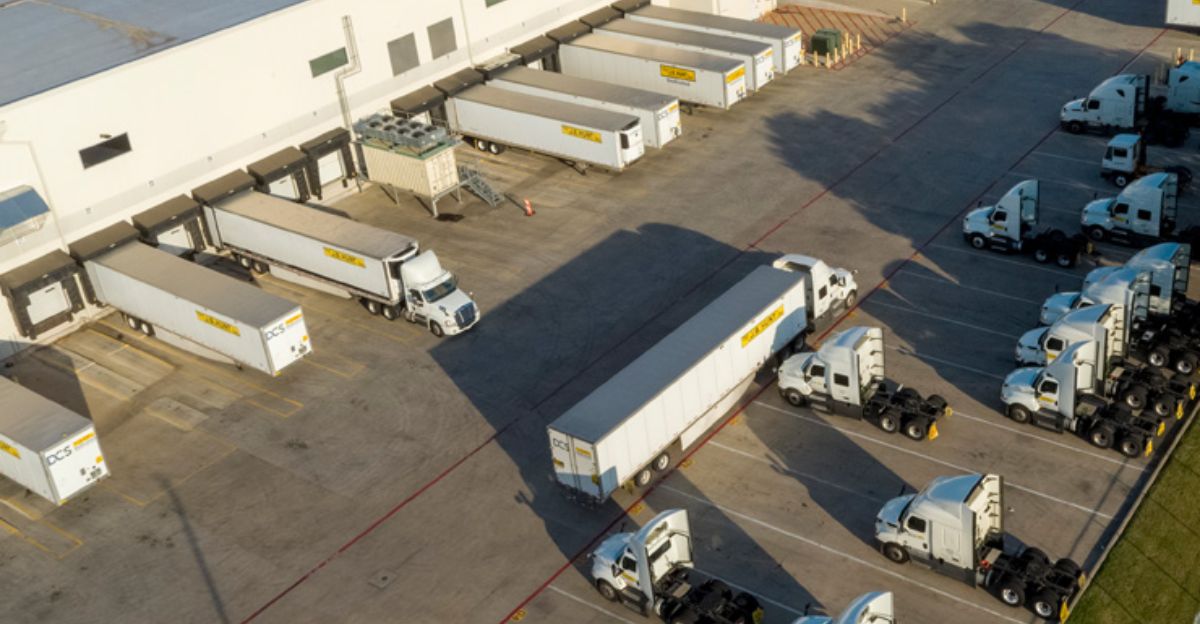
With key hubs closing and thousands of drivers laid off, U.S. logistics stands at a crossroads. The American Trucking Assns. had forecast only a ~1.6% freight volume growth for 2025, a target now in doubt.
The industry is asking whether its cost-cutting and new strategies will be enough, or if more disruptions lie ahead. Answers in the next year will shape the future of supply-chain stability.
Regulatory and Tech Shifts

New policies and innovation are also reshaping trucking. Federal regulators have proposed “drastically” tightening rules for driver eligibility, which could shrink an already tight labor pool. At the same time, technology is accelerating: a recent Senate report warns AI could replace up to 50% of U.S. truck drivers within a decade.
Carriers are investing in autonomous trucks and advanced fleet software as a hedge against these changes.
Adaptation and Innovation
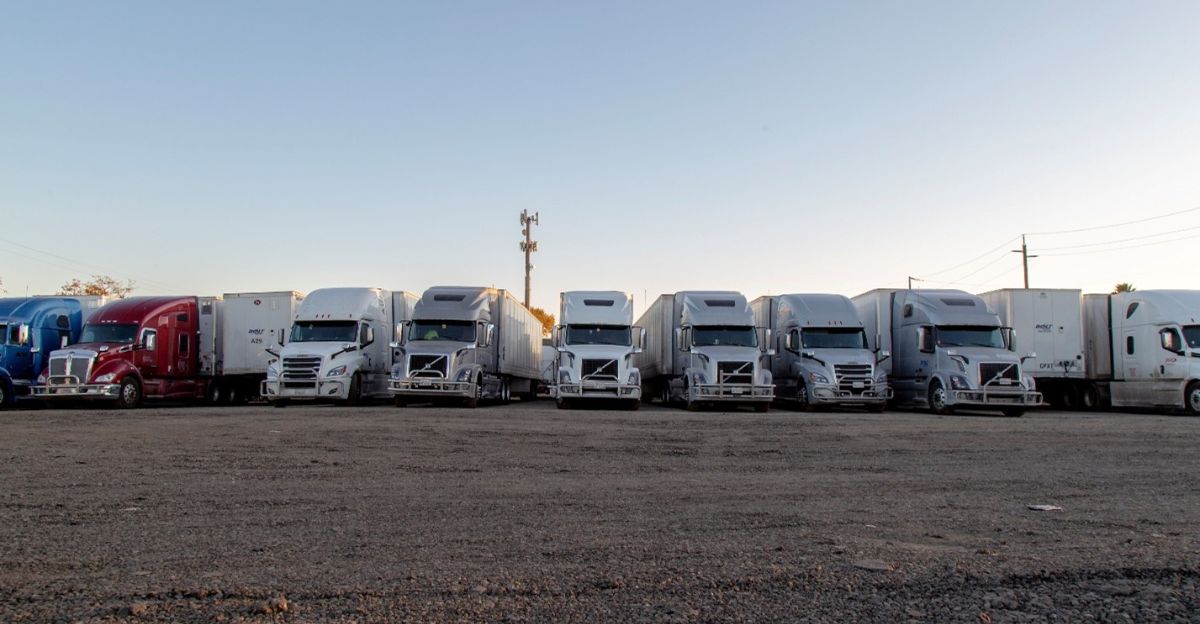
Despite the gloom, some see opportunity. James Peoples says he is “quite optimistic about the future of the trucking industry,” citing efficiency-enhancing tech (like autonomous vehicles and logistics software).
Carriers are also consolidating networks, offering integrated services, and collaborating with shippers on resilience. Industry veterans believe the companies that embrace these innovations most aggressively will emerge stronger when demand eventually recovers.
A Learner Future

In the end, most experts say this chapter closes with adaptation. J.B. Hunt and others are cutting excess capacity and funding modernization – roughly $100 million in savings was identified for efficiency upgrades.
Most analysts expect freight volumes to recover only gradually as networks slim to fit demand. The logistics sector will survive this storm, but only if it evolves into a leaner, more tech-driven industry.